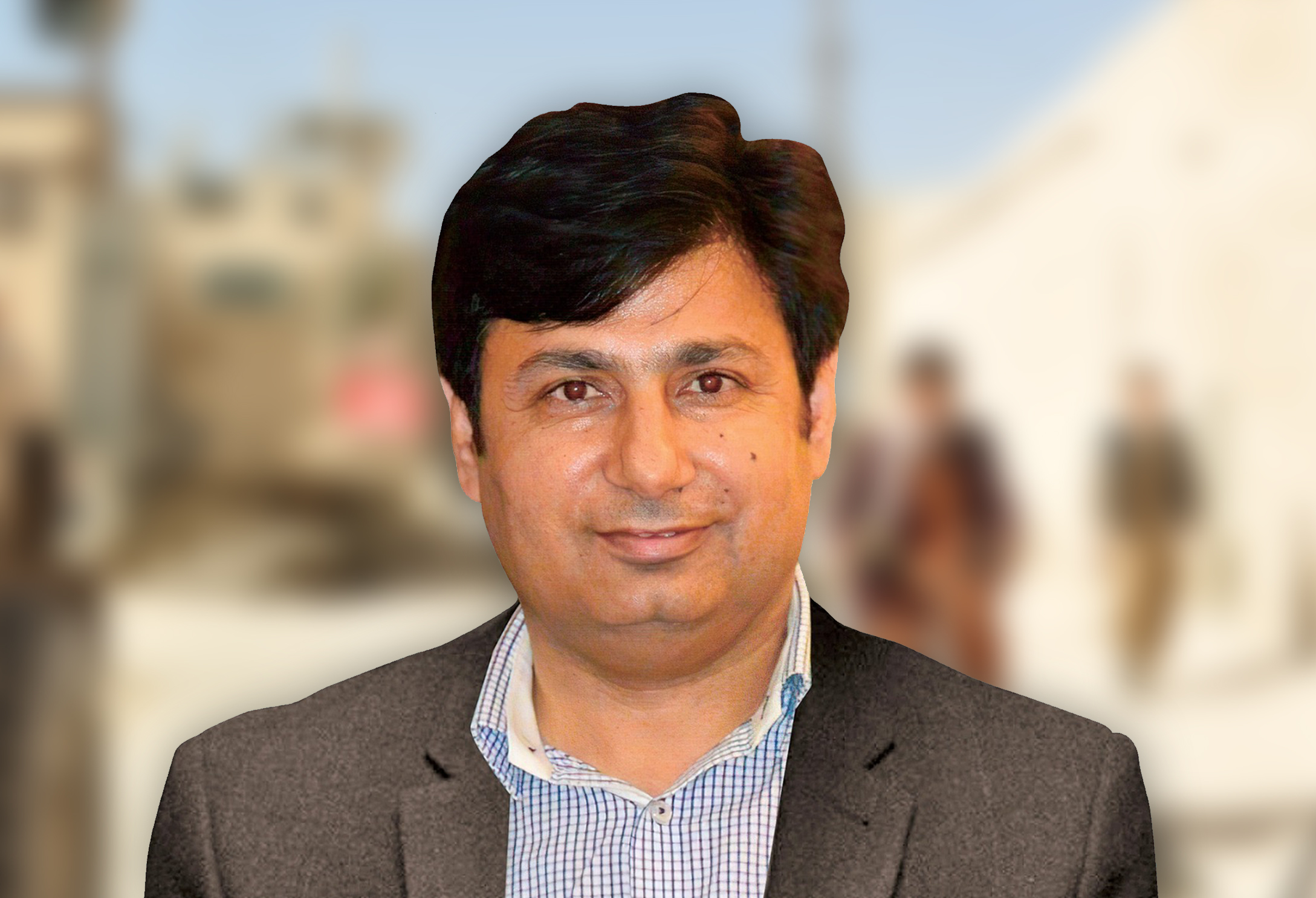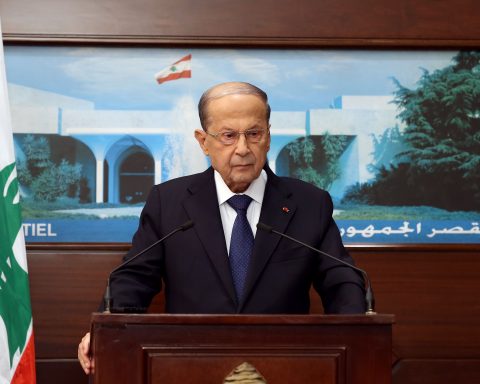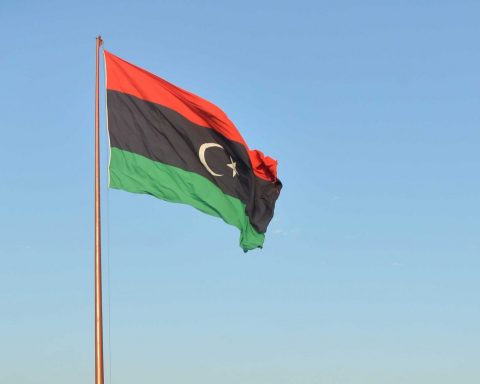Abdennour Toumi: The Taliban have formed a caretaker government, weeks after they took control of the country. What is your take on their new way of governing? How will the Taliban’s new caretaker government deliver for the Afghan people?
Asst. Prof. Imran Ashraf: The Taliban’s new political set-up in Afghanistan, in contrast to their government from 1996 to 2001, has four distinct features. The first of these is that the Taliban’s leadership is willing and trying to be engaged with the outer world for its recognition. Second, the Taliban government is putting efforts to have an inclusive appearance for which intra-tribe dialogue is in process. Third, the Taliban is trying to project a soft image by engaging with the media through educated leaders and communicating with the world in a more sophisticated way. Lastly, keeping in mind the cultural barriers present, the new Taliban government has a progressive approach towards women’s role in social, political and economic spheres. Therefore, the government may include one or two women ministers in the government in the future.
The Taliban government is under criticism over women issues. As a result, it needs an academic discourse but from the perspective of Afghan culture. From banning the national women’s cricket team to the abolishment of the Women Ministry, it seems that the Taliban government is undermining the women role in nation-building, but actually, the case is different. The Taliban leadership is busy restructuring the socio-political and economic systems within the new Afghanistan that has emerged as an independent state by virtue of the US-Taliban peace agreement 2020 and from the consequent US withdrawal from the country. The Taliban realized and even acknowledged the role of women in their two-decade-long war against the US and allied forces. In this regard, on women empowerment, I would like to submit to the Taliban government that the socio-political and economic fabric of any nation is mainly shaped by women. The empirical data from the rise and fall of nations suggests that the role of women determines the fate and future of nations. The contemporary world is no doubt an economic world. Therefore, the economic empowerment of women brings sustainable development across the social and political spheres of life.
The Taliban government can only serve the Afghan people by following a global perspective of development. The new Afghan government must chalk out a plan for development that reflects the principles of a global integrated approach. This plan may be comprised of short-term, medium-term and long-term goals. In short terms goals, economic stability must be established, for which regional and international communities may engage. The market economy may be created for people in Afghanistan, at this stage, to make them fulfil their survival needs. At this stage, terrorism prevention, education and health may also be equally focused on. In medium-term goals, building a robust relationship with regional and extra-regional countries must be on the top of the agenda for political stability. Turkey, Pakistan, China, Russia, Iran, Saudi Arabia and India are important countries in this respect. On long-term goals, three pronged strategies will work. On the international front, Afghanistan must take membership of international organizations by taking on board the US, China, Russia, the UK, and the EU. For this purpose, the African Union and Middle Eastern countries may become engaged through China and Turkey, respectively. On the regional front, under long-term goals, Afghanistan must devise a regional framework order by addressing the potential future conflicts, particularly with neighboring countries. For example, hydro-politics is currently a hot topic between Pakistan and Afghanistan, which can be addressed by reaching out to “a framework for transboundary water governance.” Meanwhile, on the domestic front, infrastructure building is critical.
Abdennour Toumi: In the aftermath of its takeover, the Taliban is taking down the last “resistance” pockets of the National Resistance Front (NRF) in the Panjshir Valley. Who are these resistants? What is their political agenda?
Asst. Prof. Imran Ashraf: The National Resistance Front of Afghanistan (NRF) or the Second Resistance is a military alliance of former Northern Alliance members and other anti-Taliban fighters who remain loyal to the Islamic Republic of Afghanistan, created after the 2021 Taliban offensive, under the leadership of the Afghan politician and military leader Ahmad Massoud and the first vice president of Afghanistan, Amrullah Saleh. The group exercised de-facto control over the Panjshir Valley, which is largely contiguous with the Panjshir Province and, as of August 2021, was “the only region out of the Taliban’s hands.” The alliance constitutes the only organized resistance to the Taliban in the country and is possibly planning an anti-Taliban guerilla struggle. The resistance has called for an inclusive government of Afghanistan; one of their objectives is speculated to be a stake in the new Afghan government. Though, Taliban spokesperson, Zabihullah Mujahid, said Taliban fighters had entered Panjshir and taken control of some territory. The National Resistance Front of Afghanistan rebel grouping, however, said it had full control of all passes and entrances and had driven back all incursions. However, it is expected that the Taliban and NRF will reach a settlement through negotiation and will avoid fighting.
Abdennour Toumi: How did Pakistan react to the return of the Taliban to power, knowing that Islamabad has legitimate concerns about the forty years of political instability and security vacuum in Afghanistan?
Asst. Prof. Imran Ashraf: The question focuses on Pakistan’s discourse over the evolving situation in Afghanistan. Pakistan has grave concerns over Afghanistan’s evolving security and human rights situation in the wake of a chaotic exit of US-led forces from the war-ravaged country. This has created opportunities as well as challenges for Pakistan which needs in-depth analysis.
Pakistan’s continued pivotal role for Afghan peacebuilding in the post-US withdrawal period is admirable. Pakistan urges the international community to be engaged with the new political actors in Afghanistan to ensure political and economic stability. On September 3, Pakistan’s Foreign Minister Shah Mahmood Qureshi emphasized that the world governments must help rebuild Afghanistan, which has been destroyed by wars that had been lingering for over four decades. On September 4, Lt. Gen. Faiz Hamid from Pakistan’s military leadership visited Afghanistan at the invitation of Taliban’s Shura. He discussed future security, political and economic ties between the new Afghan government and Pakistan. The empirical data suggests that the high stakes Pakistan faces in the rapidly changing security dynamics in Afghanistan for a few reasons. Pakistan shares the longest border with Afghanistan, making Pakistan vulnerable to possibly massive cross-border terrorism and refugee crisis. In addition, Pakistan hosts around 3 million Afghan refugees. Therefore, Pakistan can no longer afford more refugees from Afghanistan. At the same time, Pakistan is the frontline ally of the US in the Afghan War, and its loss has been dire in human and economic terms. Pakistan sacrificed 70,000 lives and suffered approximately $100 billion in economic losses.
This situation has presented certain opportunities for Pakistan. While attempting the opportunities, some may take into account contemporary developments in the backdrop of neologism in terms of expanding the scope of CPEC to CPEC+ stretching it to W-CPEC+, N-CPEC+ and S-CPEC+. Furthermore, the US withdrawal created opportunities for Pakistan to engage Afghanistan in a more robust way to play its vital role in the golden ring of connectivity through CPEC+. The new set-up, considering China as a major partner in peace and economic stability, opportunities for and Afghanistan-China Pakistan Economic Corridor (AF-CPEC) have increased, which would open new economic opportunities for Pakistan in Eurasia and Africa.
However, the situation has also evoked certain challenges for Pakistan. Since the US left Afghanistan in chaos, political instability in the country may impact the maritime sector of Pakistan. The socio-political or economic crisis in Afghanistan may also adversely impact its energy cooperation with Russia. Historically, Pakistan has had radical tendencies which the country took twenty years to de-radicalize. The ensuing Afghan civil war may undermine Pakistan’s continuous domestic de-radicalization and rehabilitation efforts. By virtue of CPEC, Islamabad has joined hands with China in mega projects under the Belt and Road Initiative (BRI). Pakistan is interested in including Afghanistan in the current BRI initiative by extending the scope of the CPEC to an AF-CPEC. It would be possible only when Afghanistan becomes politically stable. Elsewhere, Pakistan disagrees with the Western world on the approach to recognize the Taliban government. UK Foreign Secretary Dominic Raab, on September 4, said that the UK does not recognize the Taliban government but would be engaged in humanitarian assistance through NGOs. The second challenge to Pakistan is related to the Financial Action Task Force (FATF). Pakistan is already placed on its grey list. If the UK, the US and other European countries took offense at Pakistan for recognizing the Taliban government, it would be difficult for Pakistan to come out of the FATF grey list. This may have grave economic consequences for Pakistan.
In conclusion, it is pertinent for the outer world to look through Pakistan’s lens in order to understand her perspective over Afghanistan’s emerging security dilemma. The above serves as the basis for Pakistan to take a pragmatic approach towards recognizing the Taliban regime. Pakistan expects that the new political setup will hold general elections to form an inclusive Afghan representative government.
Abdennour Toumi: The Taliban Act II indicates the US’s MENA global strategy has failed on the one hand, and the emergence of new international and regional superpowers on the other hand. What is your take on this?
Asst. Prof. Imran Ashraf: The trends towards Eurasian and African integration processes are the defining characteristics of the contemporary multipolar world. The US has been losing responsibility factor across the globe since increased military activities in the Middle East and other parts of the world. The US military might have not only undermined her economic power but its soft power has also been declining. Then, in the wake of the COVID-19 pandemic, the UN Secretary-General’s appeal to size military activities across the globe to fight against COVID-19 has further limited the military scope of the US in the Middle East. Furthermore, not even a single goal has been achieved in the Middle East by the US since her military footprints in the region. In contrast to the US, Turkey, Iran, and Russia have increased their soft influence in the region. In this sense, the US alone is not in the position to solve the regional complexes. In this context, global cooperation has become an unavoidable feature of global politics. Therefore, the co-optive approach of the US may resolve the Middle Eastern socio-political issues. Turkey, being the biggest host of Syrian refugees, is the main stakeholder; therefore, great powers must take Turkey on board in Middle Eastern security discourse.
Abdennour Toumi: The Soviet withdrawal left a tumultuous vacuum of power in Afghanistan. Will the Russians be able to turn their 1989 catastrophic withdrawal into success today?
Asst. Prof. Imran Ashraf: The Taliban’s relations with Russia were political and economic. Russia continues to mediate with the Taliban and with the US to create the conditions for international peace. I believe Russia wants political and economic stability in the region due to the proximity of Afghanistan with Central Asian republics and ongoing Russian energy projects in this region, particularly with Pakistan.
Abdennour Toumi: It is clear that new global actors have emerged since the post-US withdrawal in August 2021. These actors are regional and international powers, for instance, Turkey and China. What role could these two countries play in the stabilization and rebuilding process that Afghan people have been desiring for four decades?
Asst. Prof. Imran Ashraf: Zabiullah Mujahid, an official spokesperson for the new Taliban regime said that Afghanistan desperately needs money. However, despite assurances from the new Taliban-appointed central bank head, the Taliban are unlikely to get swift access to roughly $10 billion in assets mostly held abroad by the Afghan central bank. Afghanistan may now turn for international economic assistance. Mujahid said that China is Afghanistan’s main partner and represents a fundamental and extraordinary opportunity for them, as the Chinese government is ready to invest and rebuild the country. He added that the Taliban care a lot about the BRI project, as they own rich copper mines, which, thanks to the Chinese, will be modernized. Zabiullah emphasized that China represents their ticket to the markets around the world.
Elsewhere, Turkey wants a stable Afghanistan. Turkey wants to play a role in the rebuilding of Afghanistan. The Turkish government is open to working with the Taliban under the right conditions. Turkey has experience of dealing with Syrian refugees. As a result, Pakistan and other regional countries may take Turkey’s experiences into practice in order to prepare for a potential refugee flux from Afghanistan.














